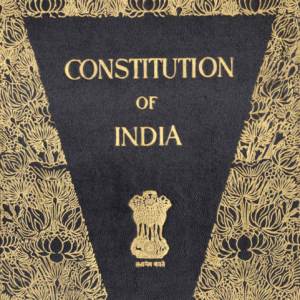
.png) Ram Puniyani
Ram Puniyani
_Cover.png)
The vibrations of the spectacle of the inauguration of Lord Ram's temple are still in the air. This inauguration was done by Prime Minster Modi, who was at the centre of the ceremony. He has ensured that he represents both the 'state power' and 'religious power'. In feudal times, these two powers collaborated closely, boosting each other. There was King-Pope, Nawab-Shahi Imam and Raja-Rajguru. In Maharashtra, there is a very apt rhyme for this collaboration, Shetji-Bhatji (Landlord and Priest). That the country is being ruled by politics in the name of religion is a matter of deep concern.
When India became Independent, and the Indian Constitution came into being, the presence of religion in social space was very much there, and so was the controversy around Somnath Temple. As Dr Rajendra Prasad was planning to inaugurate the temple as the official head of the state, Nehru wrote to him, "I confess that I do not like the idea of you associating yourself with a spectacular opening of the Somnath Temple. This is not merely visiting a temple, which can certainly be done by you or anyone else but rather participating in a significant function which unfortunately has a number of implications".
Nearly seven decades down the line, Narendra Modi, the Prime Minister of India, inaugurated the temple with pomp and show, and the President of India, Draupadi Murmu, as onlooker from her vast Rashtrapati Niwas, was the appreciative onlooker. The Central Cabinet not only hailed this act but went a step further to pass a resolution, "…the body of the country attained independence in 1947…the Pran Pratishtha (Consecration of Idol of Lord Ram) was done on 22nd January 2024… As per the resolution, the Ram Temple movement has united the country as never before, and it is the day when India's soul got freedom."
Drawing huge applause, Kangana Ranaut declared that India gained independence in 2014 when Modi became the prime minister. Prime Minister and his ideological cohorts have been saying that India was a slave for over a thousand years, implying that the period when the Muslim Kings ruled was a period of slavery.
How can we define the slavery of a country or a region? Broadly, two significant criteria can be applied. One is when the area is being controlled from outside. The Muslim kings who ruled settled here and collaborated with the local landlords-kings.
The second criterion is when the region's wealth is drained out. The period of Muslim rule did not see any such phenomenon. This phenomenon was seen during the British period. In the 'Dark Era of Empire', Shashi Tharoor tells us of the drain of wealth from India to England during this period. British rule was the period of slavery in both these counts. Some Muslim Kings did plunder but did not stay here to rule.
Now, the freedom of 1947 was accompanied by sovereignty and bestowing power to our representatives. What about the 'soul of India'? What is the soul of India? The soul of India lies in the values that were the basis of the freedom movement. The soul of India lies in these movements, which accompanied and ran parallel to the freedom movement. These were the movements of workers and farmers; these were the movements for social equality. The soul of India was built on the foundation of Indian Civilization, which is well described by Nehru India as "some ancient palimpsest on which layer upon layer of thought and reverie had been inscribed, and yet no succeeding layer had completely hidden or erased what had been written previously."
The freedom movement drew heavily from the movements of farmers (Bardoli, Champaran, among others) and the movements of workers led by Narayan Meghaji Lokhande and Com. Singaravelu, to name a few, and the struggles for social equality of caste and gender led by Jyotirao Phule, Savitribai Phule, Bhimrao Ambedkar and Ramasamy Periyar. These transformed the society from the values of a 'feudal-like' society to one with aspirations for a democratic society.
The Indian Constitution is the embodiment of the "Soul of India" for the majority of the people. Those who did not participate in the freedom movement were the ones who upheld the caste and gender hierarchy of earlier society; these were the social classes that were, on the one hand, against caste and gender equality and, on the other, against the rights of farmers and workers. These were precisely the forces which asserted politics in the name of religion, the Muslim League, Hindu Mahasabha and RSS.
Muslim League, on one side, claimed that Muslims were the rulers, while Hindu Mahasabha-RSS asserted that we have been a Hindu Nation, Islam and Christianity are foreign religions. Surendra Nath Bannerjee articulated the rising India well in his book, 'India: Nation in the Making', reflecting the country's sentiments as it was shaping around the values of liberty, equality, and fraternity.
Today, claims of Lord Ram being the uniting figure are being made. Lord Ram has many interpretations. A mythological figure presented by Maharishi Valmiki and later popularised by Goswami Tulsidas is one interpretation. Kabir saw the Lord as the embodiment of universal humanism, and Gandhi saw him as a uniting figure. RSS-BJP has presented Ram as an exclusionary figure. Around the campaign for this temple, how many lives have been lost, how the society has been polarised, how the minorities have been ghettoised and how the plight of Dalits, Adivasis, women and workers has been worsened during the last few decades gets reflected in the social indices and the emergence of Muslim ghettos, all around.
Today, we face the attack on the 'Soul of India' as it emerged during the freedom movement, in contrast to the 'Soul of India' as presented by the present ruling dispensation's efforts to create a spectacle around the temple!